Producing enough milk is a constant worry for many mothers, especially in the early stages of breastfeeding. The most efficient way to increase your milk supply is by frequently breastfeeding, holding the baby skin-to-skin, massaging the breasts, and getting enough rest.
Another way to increase milk supply is by drinking coconut water, which consists of nutrients and minerals that help stimulate lactation. Coconut water is an excellent addition to a breastfeeding mother’s diet to meet daily nutrient needs.
Aside from lactation, coconut water provides other health benefits for nursing mothers. However, there are precautions one must take before consuming them. Ultimately, breastfeeding mothers can try various lactation drinks that suit their needs.
How Does Coconut Water Increase Milk Supply?
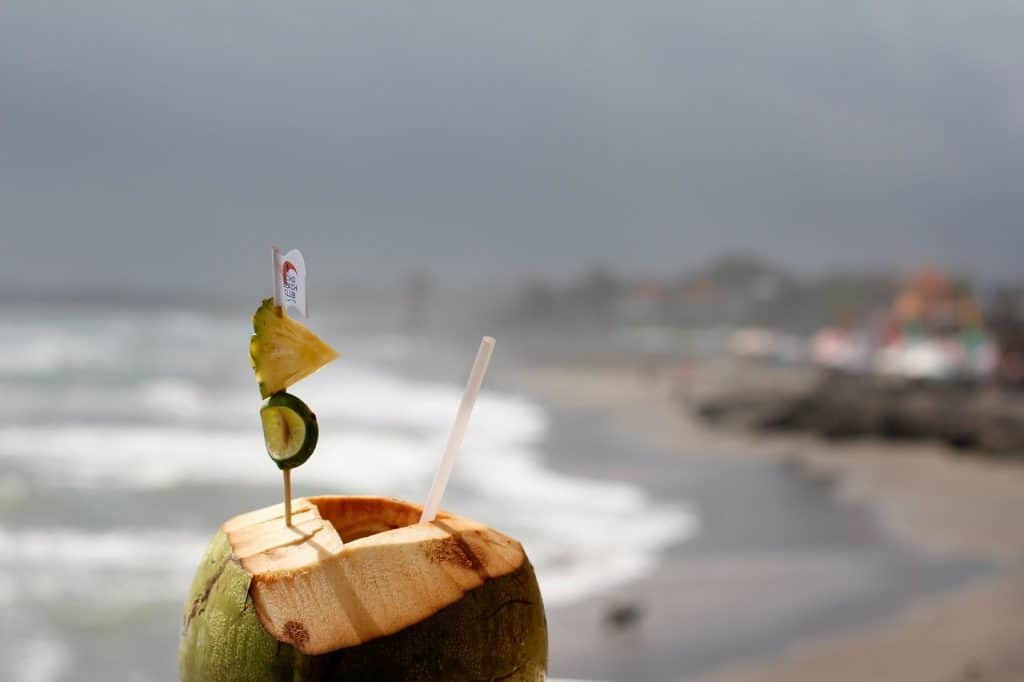
Coconut water refers to the clear liquid inside younger, green coconuts (6-7 months of age). Many people use it to combat dehydration brought by diarrhea or excessive exercise. One shouldn’t mistake coconut water for coconut milk, which comes from older, brown coconuts.
Unlike most fruit juices, coconut water is a natural beverage low in sugar and calories (around 45 to 60 calories per 8-ounce serving). Because it’s also rich in electrolytes, many people drink it after exercise or when suffering from a mild illness.
Unknown to many, coconut water isn’t only beneficial for hydration and digestion. This drink contains nutrients and minerals essential in lactation, making it a safe and natural alternative to supplements and artificial formulas for boosting milk supply.
It helps to discern the nutrients required in breastfeeding mothers’ diets and the nutritional value of coconut water. Knowing this information will give you an idea of how coconut water can improve mothers’ milk supply.
Some Essential Nutrients for Lactating Mothers
1. Calcium
Breastfeeding mothers provide most of the baby’s calcium requirement through breast milk. If they don’t increase their calcium intake, they’ll lose three to five percent of their bone mass, making them weak. They need 1000 mg of calcium daily to improve bone health.
2. Carbohydrates
Lactating women need all the energy they can procure to help nurse their babies. Therefore, they need to consume carbohydrates from healthy foods and drinks. Nursing moms must add 500 kcal of healthy food calories to their diet.
3. Folate or Folic Acid (Vitamin B9)
Folate is the natural form of vitamin B9, while folic acid refers to its synthetic form. This vitamin is essential for breastfeeding mothers because it helps produce new and healthy cells. Medical experts advise lactating women to consume 500 mcg of vitamin B9 daily.
4. Iron
Iron is responsible for multiple functions: immune support, cellular functioning, muscle growth, brain development, and oxygen absorption. Hence, it’s a crucial nutrient for lactating mothers and their babies. Note that you need Vitamin C to help in iron absorption.
5. Magnesium
Stress hormones play a critical role in the production of breast milk. Magnesium helps maintain low-stress levels while breastfeeding to ensure an adequate milk supply.
6. Protein
Protein is responsible for tissue growth. Lactating mothers need protein to ensure they can provide the baby with the nutrients they need for their growing tissues. If you breastfeed exclusively, you need at least 15 g of protein in your daily diet.
7. Thiamin (Vitamin B1)
Thiamin, or vitamin B1, is essential for brain development. If the breastfeeding mother is thiamine deficient, the baby is prone to neuromuscular and cardiac symptoms. The thiamine requirement for lactating mothers is 1.5 mg daily.
8. Zinc
Zinc is one of the essential minerals that the body needs to ensure proper immune function and growth. Your zinc requirement increases by 50% if you’re breastfeeding. Therefore, you need at least 12 mg of zinc every day instead of the usual 8 mg for non-pregnant women.
9. Vitamin A
Vitamin A pertains to a group of fat-soluble compounds. It plays a critical role in your immunity, reproduction, and vision. Breastfeeding mothers need 1,200 to 1,300 mcg of vitamin A daily to ensure the baby receives the essential nutrients to avoid blindness and poor growth.
10. Vitamin E
Vitamin E prevents anemia and protects the eyes, lungs, cardiovascular system, and nerves. It also promotes healthy muscle development. According to medical professionals, growing babies need to acquire a sufficient dose of this nutrient through breast milk.
Coconut Water Nutrition Facts
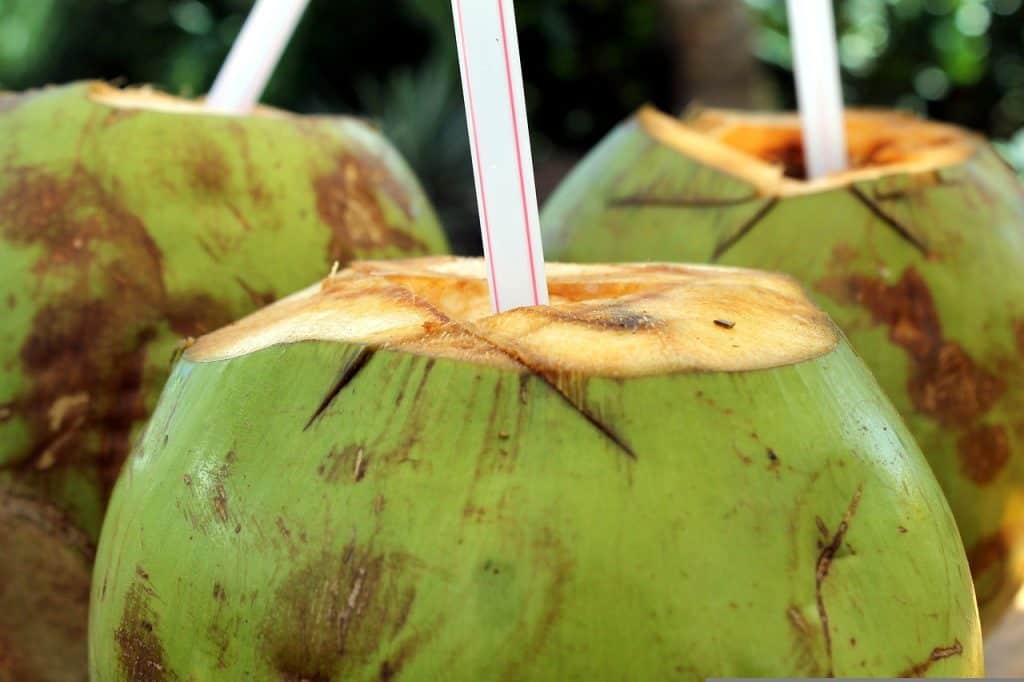
As stated earlier, coconut water is low in calories and fat and contains 94% water. This natural beverage is rich in carbohydrates, vitamins, and minerals essential for breastfeeding. Hence, it can help stimulate lactation, boost the milk supply, and reduce inflammation.
Coconut water also consists of electrolytes that help restore the body’s balance when breastfeeding. Ultimately, drinking coconut water benefits mothers who don’t want to take supplements or artificial formulas to increase their breast milk supply.
Below is a list of some nutrients breastfeeding mothers need. The numbers correspond to nutrient values you can obtain from 100% natural coconut water (per 100 g serving). The following data is from the USDA National Nutrient database.
- Calcium – 24 mg
- Carbohydrates – 3.71 g
- Folates – 3 µg
- Iron – 0.29 mg
- Magnesium – 25 mg
- Protein – 0.72 g
- Thiamin – 0.030 mg
- Zinc – 0.10 mg
- Vitamin A – 0
- Vitamin E – 0 mg
Other Benefits of Coconut Water for Breastfeeding Mothers
1. It’s Beneficial After Postnatal Exercise

If you delivered your baby without complications, you could start exercising after a few weeks. Still, you need to gain approval from your doctor. Remember that stress and fatigue affect your breast milk supply, so be cautious about increasing the duration and intensity of your exercise.
Moderate exercise after childbirth helps boost your prolactin, the hormone responsible for promoting milk production. After your workout, you might want to drink coconut water. As stated earlier, it contains electrolytes that prevent dehydration and improves muscle function.
2. It Might Help Flush Body Toxins
Animal studies show that coconut water has antioxidant properties, which help alter free radicals to prevent them from causing harm to the body. Free radicals refer to unstable and reactive molecules produced during normal metabolism. Research on humans is still required.
3. It Might Reduce the Risk of a Heart Disease
Some women are more prone to developing postpartum preeclampsia after childbirth. This condition occurs when the mother has high blood pressure or excess protein in her urine. Coconut water might help with lowering blood pressure.
4. It’s an Excellent Source of Hydration
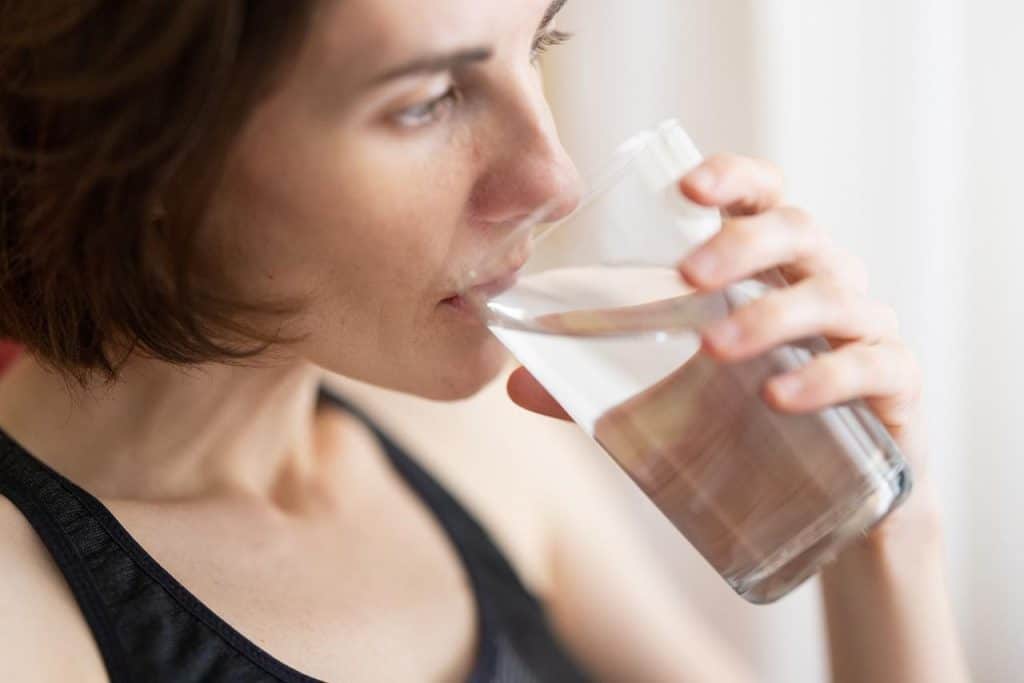
Hydration impacts breast milk supply. To boost your milk production, remember to stay hydrated and drink 128 oz of water daily. You can consume other liquids besides water, like smoothies, soups, and water-filled food like watermelon.
Another delicious hydrating beverage is coconut water. It’s slightly sweet but low in calories and carbohydrates. It’s best to consume fresh coconut water, one that’s directly out of the fruit.
Everything Breastfeeding Moms Need to Know About Coconut Water
Is Coconut Water Safe for Breastfeeding Mothers?
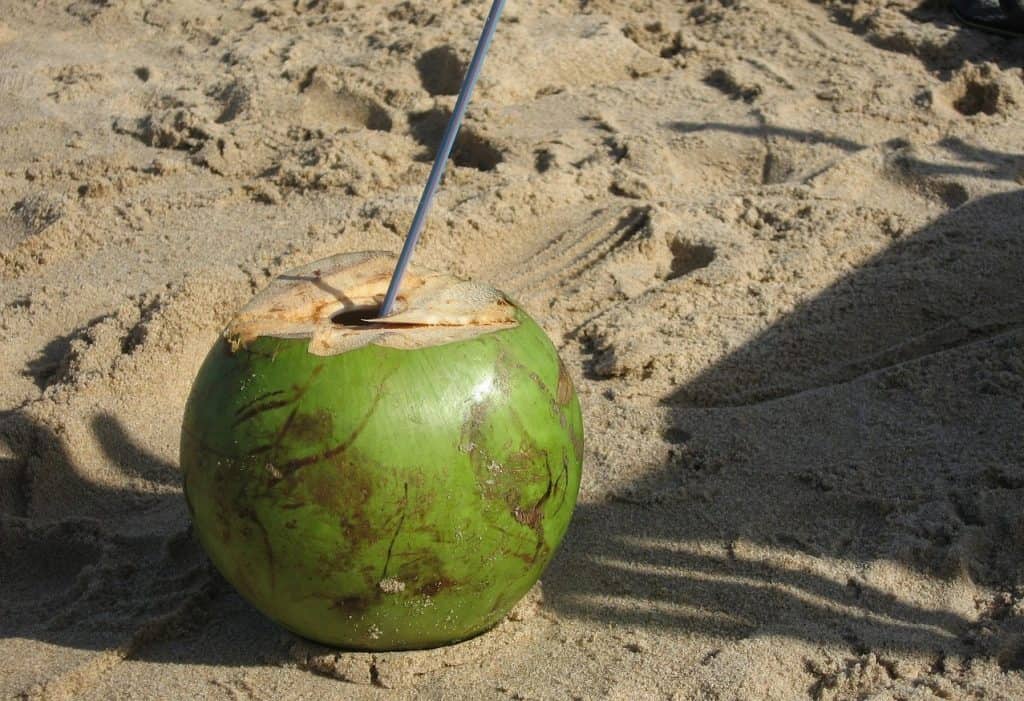
Coconut water is generally safe for everyone, including breastfeeding moms. Some might suppose that it can cause harm to people allergic to tree nuts. However, coconut isn’t a tree nut, so those with nut allergies can consume them.
It’s a whole other matter if you’re allergic to coconuts. You must avoid coconut water, coconut oil, coconut milk, and other products that contain this fruit.
Consult your doctor before consuming coconut water if you have (or have had) concerns with your blood pressure or kidney functions. Similarly, ask your doctor for advice if you’re still healing from a C-section or taking any medications or supplements.
What are the Possible Adverse Effects of Coconut Water on Breastfeeding Mothers?
Coconut water contains potassium, an essential mineral and electrolyte for breastfeeding mothers. However, an excess of this mineral in the blood can lead to hyperkalemia and cause serious heart problems.
One of the most common causes of hyperkalemia is kidney disease. If you have kidney problems, avoid drinking too much coconut water. In addition, avoid foods and drinks high in potassium, like bananas, honeydew melons, and orange juice.
Coconut water can also cause digestive problems, especially in people that must adhere to a low-FODMAP diet. FODMAPs refer to a group of carbohydrates found in certain foods like beans and wheat. Eating high-FODMAP foods can cause bloating, diarrhea, and constipation.
Which Is Better: Fresh Coconut Water or Packaged Coconut Water?
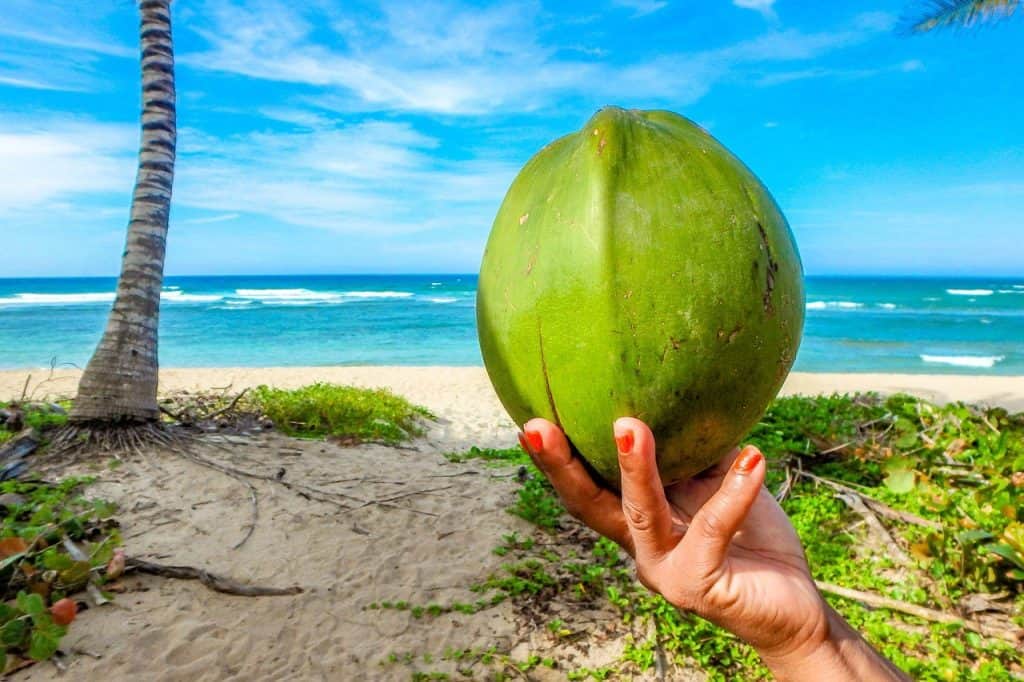
The ideal way to ingest coconut water is by breaking the young coconut open and directly drinking from the fruit (with a straw if you must). As many people say, fresh is always best. Note that fresh coconut water is perishable, so refrigerate or freeze it if you want to store it.
If drinking fresh coconut water isn’t possible, you can purchase packaged ones. There’s a variety of processed coconut water available in stores.
Some brands sell plain coconut water with as few add-ons as possible. Others mix the coconut water with other fruit juices or add flavorings, such as pineapple, peach, mango, strawberry, banana, watermelon, and more. Breastfeeding mothers might want to avoid these.
Pressed coconut water is another variety you must think twice before purchasing. It contains bits of coconut flesh, implying that the product has more fats, calories, and sugar.
Be wary of brands that market their products as “pure coconut water” or “100% natural.” In most cases, brands add sweeteners and flavoring. They also use a concentrate and heat pasteurize their products, which can harm one’s health.
Pasteurization refers to the process of heating liquid foods to kill harmful bacteria. This treatment destroys some of the nutrients found in fresh coconut water. Therefore, pure coconut water is better for one’s health.
How Much Coconut Water Should Breastfeeding Mothers Take in a Day?
The amount of coconut water one can consume in a day differs from person to person. After all, each individual has different needs and health conditions. However, experts generally recommend drinking around two liters of coconut water daily.
Is Coconut Water the Same as Coconut Milk?
Many people confuse coconut water with coconut milk. As stated above, the former is a clear liquid inside young coconuts containing various health benefits, including lactation. Meanwhile, coconut milk consists of the flesh of coconuts and is high in fats and calories.
Other Lactation or Breastfeeding Drinks Aside from Pure Coconut Water
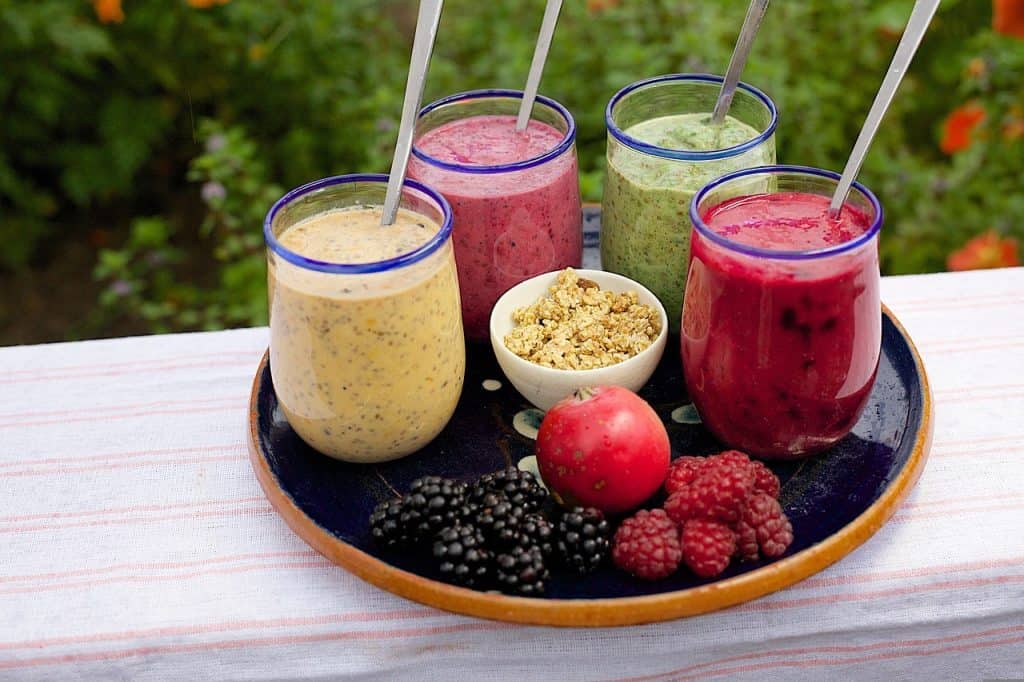
There are various lactation drinks you can try besides pure coconut water. You can experiment with a blend of herbs and different minerals and vitamins to create a beverage that perfectly suits your taste and needs.
Drinking breastfeeding beverages usually doesn’t produce any side effects. However, immediately stop ingesting the drink if you experience adverse reactions (e.g., vomiting, nausea, dizziness, diarrhea, etc.). Contact your doctor if needed.
Below are some breastfeeding drinks you might want to try.
1. Lactation Smoothie
Ingredients:
- ¼ cup of pure coconut water (alternatives: oat milk, almond milk, coconut milk)
- ½ cup of fresh pineapple juice (or any fresh fruit juice you prefer)
- ¼ teaspoon of powdered ginger
- A dash of black pepper
- A pinch of sunflower seeds (alternatives: chia seeds, sesame seeds, hemp seeds)
- Fruit of your choice (optional)
Directions
Step 1: Blend base, fresh juice, ginger, and other ingredients until smooth and frothy.
Step 2: Serve and drink immediately.
2. Lactation Tea
Ingredients:
- Green tea (you can use loose tea leaves or tea in a tea bag)
- Lactation protein powder
- Milk (non-dairy milk is best, but you can use a milk of your choice)
Directions
Step 1: Boil half a cup of water.
Step 2: Fill your cup or mug halfway with hot water.
Step 3: Steep the tea for three minutes.
Step 4: Add a scoop of lactation protein powder, then stir.
Step 5: Fill the remainder of your cup or mug with your preferred milk.
Step 6: Mix. Add ice if you want a cold drink.
Final Thoughts About Coconut Water & Breastfeeding
Nursing moms have ongoing concerns regarding their baby’s health. Experts recommend pure coconut water as an addition to the diet of breastfeeding mothers who want to boost their breast milk supply.
It’s worth noting that the effect might show after a few hours for some mothers and several days for others. The results depend on different factors. Remember to consult your doctor if you notice adverse effects after drinking coconut water.